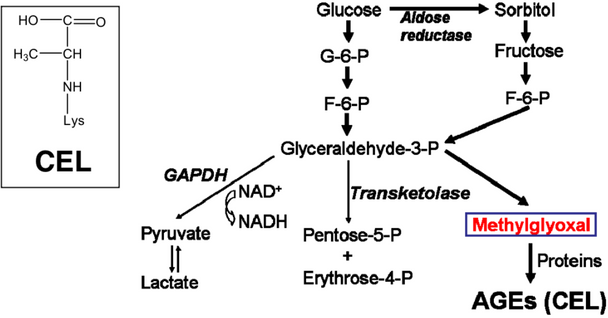Description
Clonality: Monoclonal
Host: Mouse
Purification: Ig-PG
Advanced Glycation End Product (AGE) is a general term for structures generated in the late stage of non-enzymatic glycation reactions (Millard reactions) between reducing sugars and proteins. AGE accumulation is known to be significantly elevated in age-related diseases such as diabetes and arteriosclerosis.
Nε-(carboxyethyl) lysine (CEL) is generated from protein modification by methylglyoxal (MG). MG is enzymatically derived from the Embden-Meyerhof and polyol pathways, through the degradation of glyceraldehyde-3-phosphate (G3P) (Phillips and Thornalley, 1993). Mclellan et al. (McLellan et al., 1994) demonstrated that plasma MG concentration in insulin-dependent diabetic patients was 7-times higher than in healthy individuals. CEL accumulation increases with age in human lens proteins.
Source: Professor Nagai Ryuji, Tokai University Faculty of Agriculture Department of Biosciences Food Bioregulation Research Laboratory
References:
Nagai R., Fujiwara Y., Mera K., Yamagata K., Sakashita N., Takeya M. Immunochemical detection of Nε-(carboxyethyl)lysine using a specific antibody. J. Immunol. Methods 332, 112-120 (2008). PMID: 18242632






